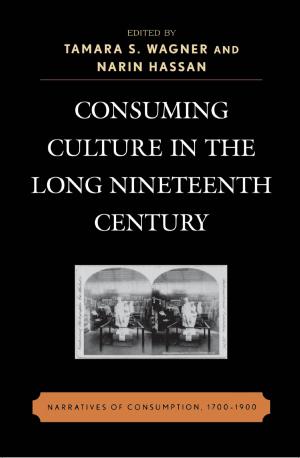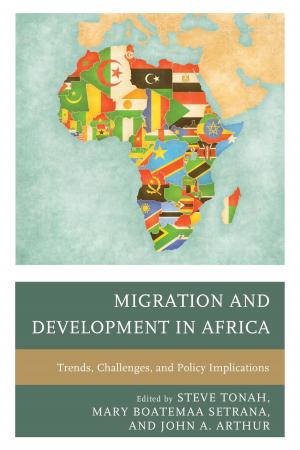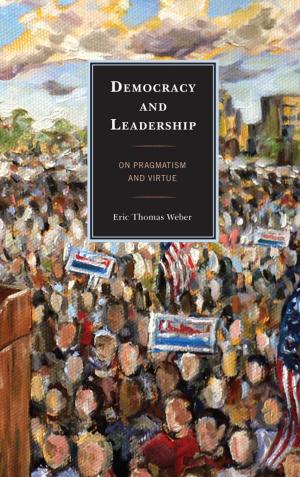Grounding Leadership Ethics in African Diaspora and Election Rights
Nonfiction, Social & Cultural Studies, Political Science, Government, Elections, International| Author: | Jean-Pierre K. Bongila | ISBN: | 9780739167403 |
| Publisher: | Lexington Books | Publication: | October 10, 2013 |
| Imprint: | Lexington Books | Language: | English |
| Author: | Jean-Pierre K. Bongila |
| ISBN: | 9780739167403 |
| Publisher: | Lexington Books |
| Publication: | October 10, 2013 |
| Imprint: | Lexington Books |
| Language: | English |
This book analyzes the leadership ethics dilemma of whether the diaspora ought to vote specifically in their homeland franchise. This quagmire becomes even more complex in the case of Africa, where some diasporas participate in their countries’ elections and others don’t.
It implies and goes beyond the mere question of “why” or what are the reasons behind the fact that members of some countries vote and those of other nations do not. The analysis contained in the book deals with whether it is right or wrong (good or bad; just or unjust; virtuous or immoral, desirable or undesirable) for citizens living overseas to participate in their countries’ suffrages, and for the leaders of African countries to extend the franchise rights to their diaspora.
Pedagogically, the book proposes an applied methodology of leadership decision-making based on ethical dilemmas, which instructors and learners of various disciplines, particularly those in leadership ethics, as well as global leaders might find useful. The combined DIRR (Description, Interpretation, Rehearsal and Re-discernment) proposed by Enomoto & Kramer (2007) and the prudent pragmatism by Bluhm & Heineman (2007) correspond to the traditional African “baobab tree” as a physical space of social and political conflict resolutions.
In this book, the “baobab tree”, an ethical arena of public debates, helps to weigh primarily the need for diaspora Africans to get the right to vote, as well as the social, political and economic benefits such a right, if it were granted, would entail for all the parties involved. Drawing from the examples of countries that have championed some form of democratic processes, including expatriate elections, the book brings to the forefront the crucial role of both the leadership of Africa and that of their diaspora in spearheading the continent on the path of sustainable development.
This book analyzes the leadership ethics dilemma of whether the diaspora ought to vote specifically in their homeland franchise. This quagmire becomes even more complex in the case of Africa, where some diasporas participate in their countries’ elections and others don’t.
It implies and goes beyond the mere question of “why” or what are the reasons behind the fact that members of some countries vote and those of other nations do not. The analysis contained in the book deals with whether it is right or wrong (good or bad; just or unjust; virtuous or immoral, desirable or undesirable) for citizens living overseas to participate in their countries’ suffrages, and for the leaders of African countries to extend the franchise rights to their diaspora.
Pedagogically, the book proposes an applied methodology of leadership decision-making based on ethical dilemmas, which instructors and learners of various disciplines, particularly those in leadership ethics, as well as global leaders might find useful. The combined DIRR (Description, Interpretation, Rehearsal and Re-discernment) proposed by Enomoto & Kramer (2007) and the prudent pragmatism by Bluhm & Heineman (2007) correspond to the traditional African “baobab tree” as a physical space of social and political conflict resolutions.
In this book, the “baobab tree”, an ethical arena of public debates, helps to weigh primarily the need for diaspora Africans to get the right to vote, as well as the social, political and economic benefits such a right, if it were granted, would entail for all the parties involved. Drawing from the examples of countries that have championed some form of democratic processes, including expatriate elections, the book brings to the forefront the crucial role of both the leadership of Africa and that of their diaspora in spearheading the continent on the path of sustainable development.















